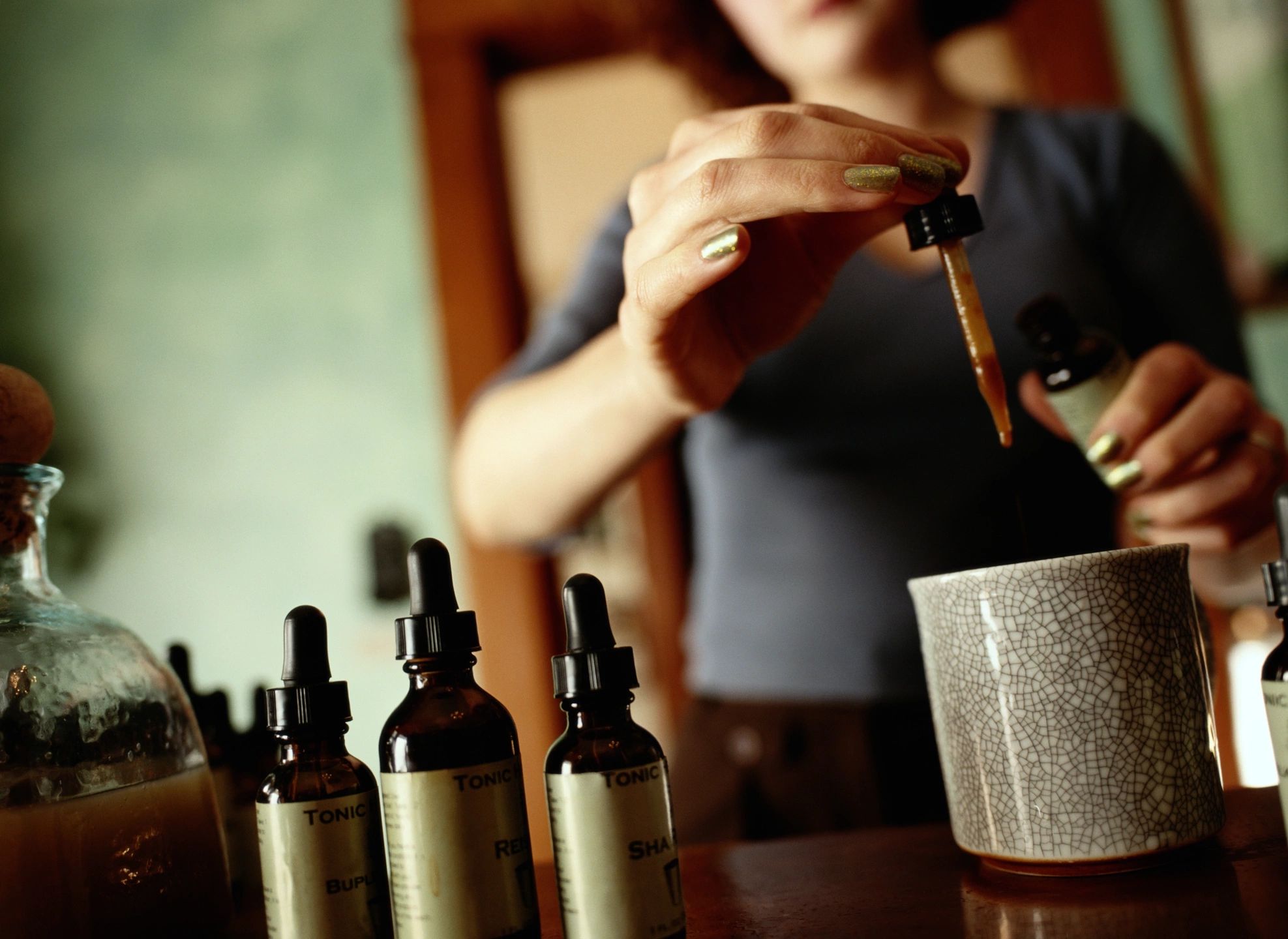
Natural Treatment Options for Underactive Thyroid
Written by contributor and registered diagnostic imaging tech, Tia Mapes
As a technologist in the diagnostic imaging field, I come in contact with many patients, with diverse complaints and symptoms that result in their doctor ordering the imaging of one gland; the thyroid. Many people don’t know much about this gland or what it does, even though they should learn more due to it’s major importance.
How the Thyroid Functions
Its modest size and location is quite contrary to the vast range of systems it affects via endocrine function. Because of these complex interactions with other systems in the body, the presentation of thyroid disease can have many faces, however, the most common complaints surrounding dysfunction result from an underactive state called hypothyroidism.
In normal conditions, the thyroid gland, situated centrally low in the neck, is stimulated by the pituitary gland, another small gland housed at the base of the brain.
The pituitary gland constantly monitors the levels of the thyroid hormones (T3 and T4) circulating within the body.
When these hormones fall below the normal range, the pituitary counteracts this drop by releasing its own hormone from its arsenal; thyroid stimulating hormone (TSH).
This hormone attempts to restart the thyroid much like jumping a car battery, or applying electrical stimulation to an arrhythmic heart.
Ideally, the release of TSH will exact a response from the thyroid that triggers an increase in production and release of both T3 and T4 to restore homeostasis within the body. The pituitary will then reevaluate the levels of thyroid hormones in the blood and terminate stimulation upon adequate presence of the hormones within the blood.
The levels of thyroid hormone have a substantial impact on the regulation of metabolism, the primary function of the thyroid. This is accomplished through the consumption of nutrients specific to thyroid hormone production which then combine it with the amino acid tyrosine to make T3 and T4.
The hormones are released into the bloodstream to maintain metabolism by converting oxygen and calories into energy, stimulation of fat mobilization out of tissues and into the blood to be used for energy, and regulation of carbohydrate metabolism and the utilization of glucose for energy.
Hypothyroid Symptoms
Hypothyroidism, or an underactive thyroid, generally produces symptoms relative to a slow Iodine is essential to this process and absorbed metabolism and include:
- fatigue
- headache
- dry skin
- psoriasis
- weight gain
- cold hands and feet
- poor memory
- hair loss
- hoarseness
- nervousness
- depression
- joint and muscle pain
- burning or tingling sensations in the hands and/or feet (hypothyroid neuropathy)
- yellowing of skin from excess carotene (conversion of carotene to vitamin A hindered in hypothyroidism
- problems with balance and equilibrium
- constipation
- myxedema or swelling around the ankles, and below the eyes
- hypertension (high blood pressure)
- angina (chest pain)
- atherosclerosis (hardening of the arteries)
- hypercholesterolemia (high cholesterol)
- menstrual irregularities
- infertility
- PMS
- reactive hypoglycemia
It has been estimated that 10 million people suffer from this condition, and as many as 10% of all women currently possess some form of hypothyroidism.
Some patients may even suspect they have abnormal thyroid function and feel distressed to find their blood work return within a normal range.
This condition is called euthyroid, where T4 is inefficiently converting into active T3, so blood tests will show normal results.
Even individuals prescribed synthetic thyroid hormones may find their symptoms persist because these prescriptions only contain T4, and since T4 conversion is inefficient, they continue to experience hypothyroid symptoms.
As a result of the range of symptoms, degree of dysfunction, and the insidious manner in which it progresses, some people are completely unaware they are living with a condition that, depending on the severity, may be corrected by effective non-prescription supplementation. These supplements not only counteract the effects of a low functioning thyroid but also provide the body with some of the building blocks of T3 and T4 necessary to restore metabolism in the body.
Natural Treatment Options for Underactive Thyroid
When considering an over the counter product to promote the function of the thyroid and counteract symptoms associated with an underactive state, there are many things to consider. The most prominent complaint amongst hypothyroid sufferers is intractable fatigue and weight gain. Surprisingly, there are some energy supplements that stimulate not only the synthesis of energy through fat metabolism and thermogenesis but contain ingredients essential to the conversion of T4 to T3. Going down the herbal/natural route may be best for someone who is wary of traditional medicines. If they want to make their own capsules with the various herbs (at safe levels) they can go onto company websites such as Capsule Supplies to find out what they can get and use.
TYROSINE
Tyrosine is an amino acid instrumental in thyroid hormone production. Recall that tyrosine binds with iodine-the mineral upon which all thyroid hormone production depends. Without tyrosine to bind, iodine would be useless in creating T3 and T4 responsible for all metabolic activity. Along with a diet containing iodine, (daily recommended value is met with one quarter teaspoon of iodized salt-of which most table salt is comprised) supplementing your intake with a tyrosine containing stimulant will promote the production of T3 and T4 and fight the fatigue often accompanied by low thyroid function.
WHITE WILLOW BARK
This extract contains salicin, which the body converts to salicylic acid, commonly referred to as the active ingredient in aspirin. As an anticoagulant, or blood thinner, this natural source can combat the effects of increased cholesterol, inflammation of joints, and blood pressure symptoms that can be found in a hypothyroid state.
BITTER ORANGE EXTRACT
This natural ingredient contains the vitamins A, B, and C, which are all required components for T4 production. Other benefits include a synephrine component that promotes thermogenesis, or increased heat production by burning calories, which affects metabolism aiding in weight loss, and this process produces an energizing effect that fights fatigue.
GUARANA EXTRACT
This herbal ingredient contains caffeine, which is notorious for its stimulant effect, thermogenic properties, and appetite suppressant properties, fighting many of the major thyroid symptoms/ problems.
SIDA CORDIFOLIA
This is an ephedrine/ephedra herb allowing for stored body fat to be released into the bloodstream to be utilized as energy fighting the fatigue and weight gain common to hypothyroidism.
GINGER ROOT
Ginger root is ideal for boosting the circulation which is decreased with thyroid problems manifesting as cold hands and feet, contributing to dry skin and constipation. It is also used as a tool in lowering high blood pressure and keeping the blood thin in higher doses both of which are seen in low function thyroids.
CBD OIL
This has been found to have many health benefits and can help to deal with different Hypothyroid symptoms, including headaches, nervousness, depression, joint and muscle pain, constipation and angina. CBD oil comes in many different forms: from pure oils to cbd pills to gummies, there’s bound to be an option that suits how you prefer to take medicine/supplements. Some CBD oils are even combined with other helpful ingredients like turmeric, with the potential for additional health benefits on top of the help for the thyroid. Here is a list of the best CBD oils you can purchase in the UK.
ACETYL L-CARNITINE
This is another amino acid effective in energy production combating fatigue.
GREEN TEA EXTRACT
This herbal remedy promotes increased metabolism and fat oxidation fighting weight gain and promoting weight loss and metabolic restoration.
Support Your Thyroid Naturally
There you have it, natural remedies to help with an underactive thyroid. Now–as always, seek advice from your doctor before beginning any self treatment. Once you get the go-ahead, stop by our store. We have everything you need, and more, to help naturally treat your underactive thyroid.
